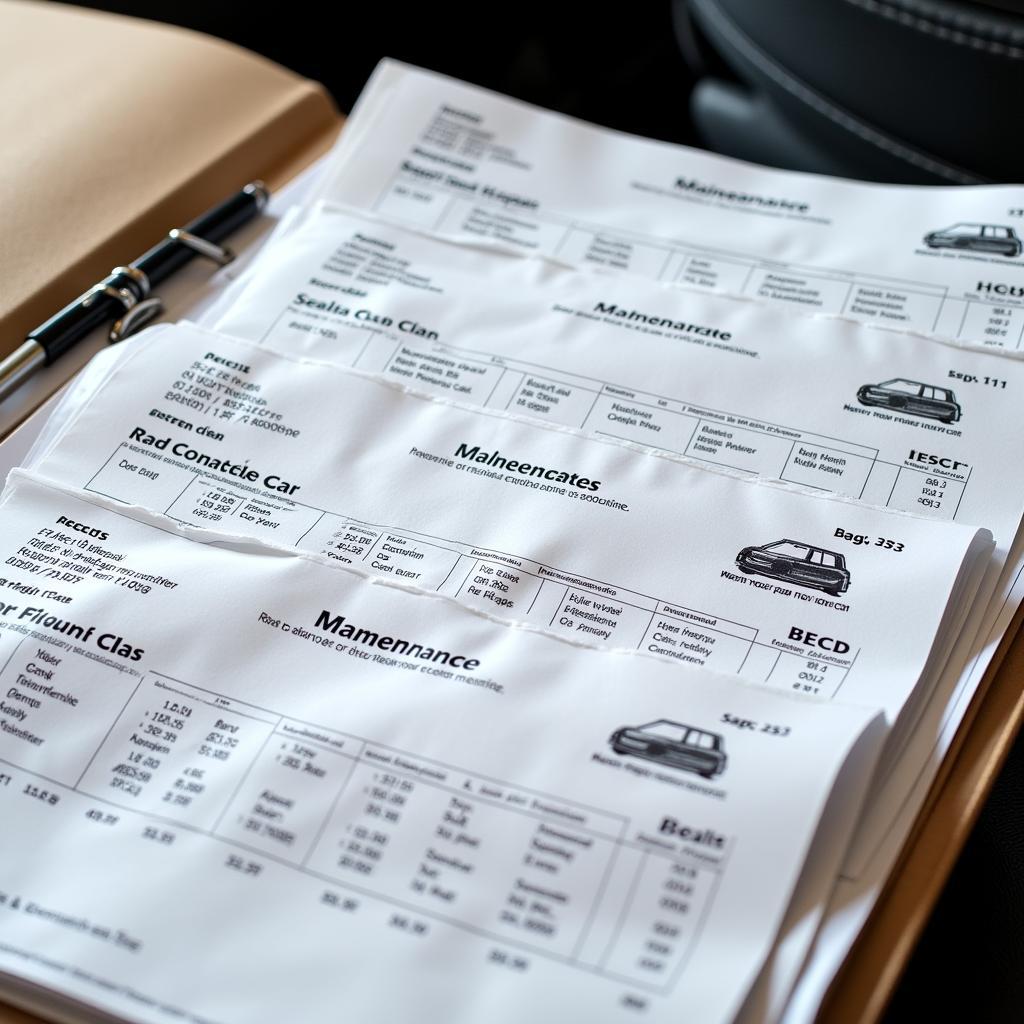As a car owner, you know that keeping up with regular maintenance can save you money and headaches in the long run. But did you know that some car maintenance expenses may be tax deductible? Understanding what qualifies as a tax write-off can potentially save you money come tax season.
Deducting Car Expenses: It’s All About Business Use
Here’s the key thing to understand about writing off car maintenance on your taxes: it primarily applies if you use your vehicle for business purposes. The IRS allows deductions for expenses related to operating a vehicle for your business, including:
- Self-Employed Individuals: If you’re self-employed (freelancer, independent contractor, etc.) and use your car for business purposes, you are likely eligible for these deductions.
- Business Owners: Businesses of all sizes can often deduct vehicle expenses.
Let’s delve deeper into what constitutes “business use.”
Defining “Business Use” of Your Vehicle
The IRS is pretty specific about what qualifies as “business use” when it comes to vehicles. Here are some examples:
- Driving to meet clients or customers.
- Traveling between your regular workplace and a temporary work location.
- Going to a business meeting.
- Picking up supplies or equipment essential for your work.
Important Note: Commuting to and from your regular workplace is not considered business use.
Tracking Your Mileage and Expenses: The Importance of Documentation
To claim car maintenance as a tax write-off, meticulous record-keeping is essential. Here’s what you should track:
- Mileage: Maintain a detailed mileage logbook or use a mileage tracking app. Record the date, starting and ending mileage, and purpose of each trip.
- Receipts: Save all receipts related to your car expenses, including:
- Repairs and maintenance (oil changes, tire rotations, brake pads, etc.)
- Fuel costs
- Insurance premiums
- Parking fees (for business purposes)
- Tolls (for business purposes)
- Lease payments (if you lease your vehicle for business)
- Depreciation (if you own your vehicle)
 Car Maintenance Receipts
Car Maintenance Receipts
Pro Tip: Consider using a separate credit card for business expenses. This makes it much easier to track your deductible purchases.
Choosing the Best Deduction Method
You have two options for deducting car expenses on your taxes:
-
Actual Expense Method: This involves deducting the actual costs you incurred for your vehicle. You’ll need detailed records of all expenses. This method is often beneficial if you have high vehicle expenses or drive an older car.
-
Standard Mileage Rate: The IRS sets a standard mileage rate each year that allows you to deduct a specific amount per business mile driven. This simplifies record-keeping as you only need to track your mileage. However, you can’t deduct actual expenses like repairs or depreciation using this method.
oil changes and car maintenance deduction can be tricky to calculate. It’s best to consult with a tax professional to determine which method benefits you most.
Car Repairs and Maintenance: What Can You Deduct?
Generally, you can deduct the cost of repairs and maintenance that are considered “ordinary and necessary” for your business. This includes:
- Oil changes
- Tire rotations
- Brake repairs
- Engine tune-ups
- New tires
- Repairs due to an accident (if the accident occurred while using the car for business)
Capital Expenses: Depreciation and Section 179
More significant car-related expenses, like purchasing a new vehicle, are considered capital expenses. You can’t deduct the entire cost upfront. Instead, you’ll depreciate the asset over time.
- Depreciation: This allows you to deduct a portion of the vehicle’s cost each year over its useful life (usually five years).
- Section 179: This IRS provision may allow you to deduct a significant portion of the vehicle’s cost in the year you placed it in service. However, there are limitations and qualifications.
can you write off car repairs and maintenance tax deductions is an excellent resource to learn more about specific deductions.
Consulting a Tax Professional
Tax laws can be complex, and the information provided here is for informational purposes only. It’s always best to consult with a qualified tax professional for personalized advice. They can:
- Determine your eligibility for car-related tax deductions.
- Advise on the best deduction method for your situation.
- Help you maximize your deductions while staying compliant with IRS regulations.
Remember, maintaining accurate records and understanding your eligibility are key to successfully claiming car maintenance as a tax deduction.
Frequently Asked Questions
1. Can I deduct car washes for my business vehicle?
Yes, you can generally deduct car washes for a business vehicle as long as they are considered ordinary and necessary expenses for your business.
2. Can I switch between the standard mileage rate and the actual expense method?
You can switch from the standard mileage rate to the actual expense method, but not the other way around.
3. What if I use my car for both business and personal use?
You can still deduct expenses, but only for the portion of use attributable to your business. Keep detailed records to support your deductions.
4. Do I need to keep my mileage log forever?
While there is no set time frame, the IRS recommends keeping records for at least three years from the date you filed your return.
5. Can I claim car maintenance deductions if I’m an employee?
Generally, employees cannot deduct car maintenance expenses unless they are reimbursed by their employer under an accountable plan.
Need help navigating car-related tax deductions? Contact AutoTipPro today at +1 (641) 206-8880 or visit our office at 500 N St Mary’s St, San Antonio, TX 78205, United States. Our team of experts can provide guidance and support to help you maximize your deductions.




Leave a Reply